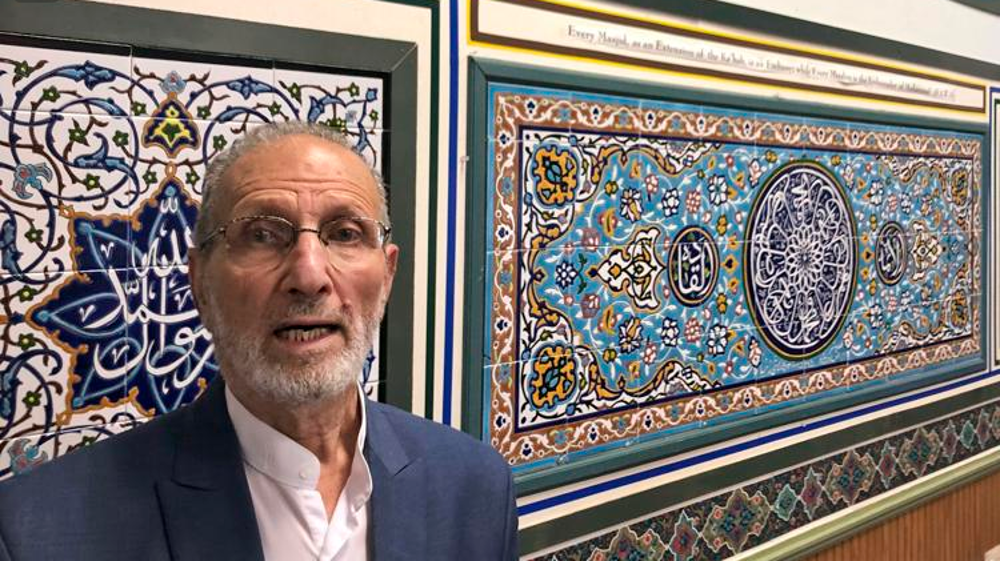Abolfazl Nahidian, of the Manassas Mosque in Manassas, Va., poses after a press conference, Aug. 10, 2021. (Photo by AP)
US custom authorities have confiscated a set of Iranian tiles to be used in construction of a new mosque in Virginia, demanding they must be shipped backed to Iran or destroyed
The tiles, which are adorned with Qura’nic verses, were shipped in June from the Iranian city of Qom, to be used in construction of the Manassas Mosque in northern Virginia
However, they were confiscated at Dulles International Airport after they were deemed to violate sanctions on Iran, the mosque’s imam Abolfazl Nahidian said on Tuesday
The tiles were a gift and he paid no money for them, but custom authorities at the airport blocked him from claiming them citing the sanctions, he told a news conference at the mosque
A letter from Customs and Border Protection informed the mosque that the tiles must be either shipped back to Iran or destroyed, the Associated Press cited him as saying
Destroying the tiles, which are adorned with Qur’anic verses, “is the same as destroying verses of the Qur’an, or the whole Qur’an itself”, Nahidian said
The mosque is now asking the Biden administration to release the custom-made tiles
Nahidian said he has received other tile shipments throughout the years without incident, including one shipment that arrived eight months ago. He has led the mosque for nearly three decades
The Biden administration is locked in a standoff over the US return to a 2015 nuclear deal with Iran, showing an aversion to remove the most draconian sanctions which its predecessor imposed on the Islamic Republic
President Joe Biden has admitted that Washington was wrong to abandon the nuclear agreement, but he is showing an urge to retain some aspects of the sanctions as leverage to pressure Iran
Food, medicine and other humanitarian supplies are purportedly exempt from the sanctions that Washington imposed on Tehran after former president Donald Trump walked away from the international deal over Iran’s nuclear program
But the US measures targeting everything from oil sales to shipping and financial activities have deterred any dealing with Iranians – including humanitarian activities
A spokesperson for Customs and Border Protection confirmed that the tiles were placed on hold June 21, citing the US Treasury Department’s Office of Foreign Asset Control (OFAC) that determined the tiles could not be imported under the sanctions imposed on Iran
Nihad Awad, executive director of the Council on American-Islamic Relations, said whatever one’s views are of the Iranian sanctions, it makes no sense to enforce the rules on a benign piece of religious art
“We believe the government should have common sense,” he told the Associated Press
At Tuesday’s news conference, speakers suggested that anti-Islam sentiment may have also played a role in the confiscation
